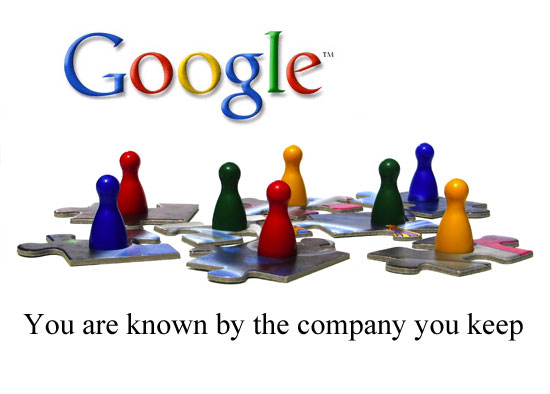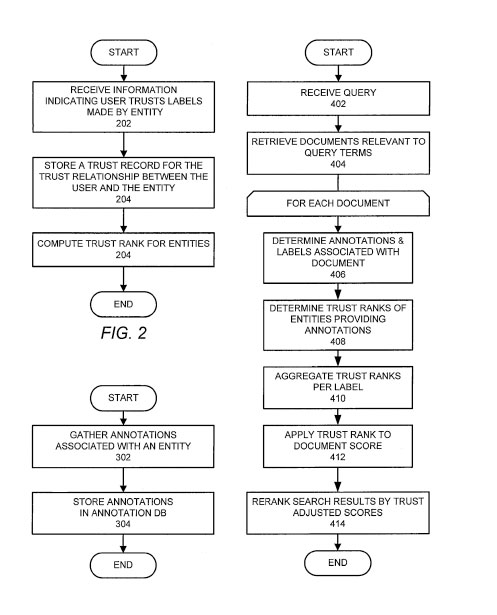How well do you know your neighbours
There is a concept that folks don’t really seem to talk about as much as they once did and I think it is time we did. And that is; TrustRank. What is it? Well, essentially it is the concepts surrounding inter-linkage of different websites. If we take it to the simplest level it goes something like this;
Generally good websites link to other good websites and bad websites do the same
This was, in many ways, one way to gauge authority and combat spam. Theory goes that a quality website isn’t going to be linking to a spammy site and a spammer won’t share PageRank with sites they don’t own… and will generally link to their other spam sites (or mates).
One of the things we saw during the whole ‘sculpting’ hub-bub back in June of 09, was that Google has somehow lost face in terms of mixed messages and backwards compatibility. Everyone remembers the ‘Page scultping doesn’t work anymore‘ fiasco at SMX Advanced? It revolved around the use of nofollow to control the flow of PageRank. What was really freaky, to me at least, were some of the little nuggets the Googlers dropped relating to TR, specifically, linking out as a benefit.

TrustRank and the nofollow tag
One of the main (original) purposes of the NF tag was for marking paid links to ensure you didn’t get smacked by Google. Let’s remember though, that the nofollow tag isn’t just about paid links, it is also for when one is unsure of the quality of the site they are linking out to, (including aspects such as blog comments).
From Matt’s post at the time;
Q: Okay, but doesn’t this encourage me to link out less? Should I turn off comments on my blog?
A: "I wouldn’t recommend closing comments in an attempt to “hoard” your PageRank. In the same way that Google trusts sites less when they link to spammy sites or bad neighbourhoods, parts of our system encourage links to good sites." – Matt Cutts
And later down in the comments;
“(…) there are also parts of our system that trust and encourage sites to link out well.” – Matt Cutts
I thought it was interesting that no one really caught that part. And by-and-large, people have all but forgotten about the value of linking out. We get so caught up in PageRank manipulation and hoarding that some get overly anal about external linking. This is a short sighted strategy.
Once more, Google actually ENCOURAGES linking out to quality sites.
Known by the company you keep
This is a very important distinction that SEOs really need to be aware of. You should bear in mind the TrusRank type concepts and;
- Consider reasonable levels of outbound linking to trusted sites
- Monitor external links to ensure said sites haven’t degraded
- Ensure the nofollow is on any suspect links
- Consider nofollow on comments or be vigilant in moderating
- Be wary of other sites hosted on your server
Yes, that last one can be a bit contentious, but there are a few patents/papers on host level spam detection and it is worth noting. Do I personally get overly concerned? Not generally. But I will from time to time during audits at least have a look.
Also, for the record, TrustRank isn’t the only game in town. Yahoo actually followed (pun intended) that up with what they called HarmonicRank. This was just an extension of the original concepts. Even Microsoft uses a related approach. In short, all modern search engines have looked at this at one time. Points being that there has always been an interest in these types of concepts, although mostly for spam detection

What’s it mean to you?
For me this all goes back to Matt’s comments last summer that one can actually be rewarded for responsible outbound linking. Does that mean there is a positive ranking weight for it? I am not entirely convinced of that. I tend to believe that the over-all TrustRank score of a site counts towards it’s authority. What is worth remembering from all of this is that not only shold you be careful with (and audit) the outbound links on your site for low quality entities, but also don’t be afraid to link to other authority sites in your niche/market.
Remember, he said, “parts of our system encourage links to good sites.” – which I take is the inverse; they penalize sites that don’t.
What is more important, or at least what I wanted to impart to you, is that you simply can’t just lockdown the site. You can’t hoard PageRank. Search engineers are people too. If you were building an index, would you trust a page that links out to other authoritative documents on the subject?
Think about it….
Related Reading;
Combating Web Spam with TrustRank – Stanford 2004
Host level spam detection patents converage – on the Trail
Harmonic Rank patent coverage – on the Trail
Propagating Trust and Distrust to Demote Web Spam – Lehigh University
Google TrustRank Patent – SEO by the Sea
Google comment spam penalties – SEO Gadget




![AI Overviews: We Reverse-Engineered Them So You Don't Have To [+ What You Need To Do Next]](https://www.searchenginejournal.com/wp-content/uploads/2025/04/sidebar1x-455.png)